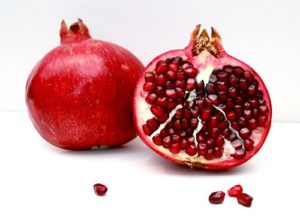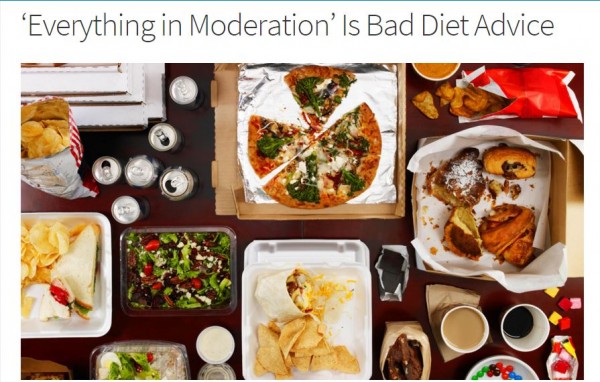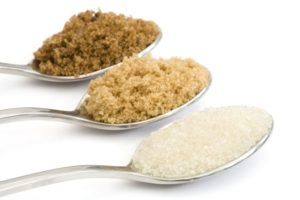 Tis the season for fresh pomegranates, which grow in tropical climates and are harvested from October to January. Pomegranate seeds are sweet-tart, antioxidant-packed, little flavor bombs. They’re great on salads, in pilafs, or all by themselves as an exotic, low-calorie snack or dessert. One of my new favorite recipes is this roasted butternut squash and black rice pilaf with pomegranate seeds.
Tis the season for fresh pomegranates, which grow in tropical climates and are harvested from October to January. Pomegranate seeds are sweet-tart, antioxidant-packed, little flavor bombs. They’re great on salads, in pilafs, or all by themselves as an exotic, low-calorie snack or dessert. One of my new favorite recipes is this roasted butternut squash and black rice pilaf with pomegranate seeds.
Getting at the seeds (technically: arils) can be tricky, however, and the juice can stain your fingers and clothes (and walls!) if you’re not careful. Here’s the trick: Cut off the top of the fruit and then slice the rind from the “north” to “south” in several places, without cutting too far into the fruit. Soak the scored fruit in a bowl of water for ten minutes. Then, while holding the fruit under the water, separate its sections and scrape the seeds away from the rind with your fingers. Discard the rinds and remove any pith floating on the top of the water (the seeds will sink to the bottom). Finally, drain the seeds in a colander. The seeds will keep in the fridge for several days.






